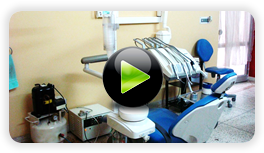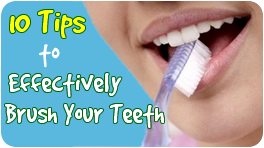What is the difference between Full and Partial Dentures?
 A full denture, also called a complete denture, replaces all of the natural teeth and provides support for cheeks and lips. By replacing missing teeth, dentures not only support sagging facial muscles, but also improve a person’s ability to speak and eat. Full dentures are divided into two categories according to when they are made and inserted into the mouth.
A full denture, also called a complete denture, replaces all of the natural teeth and provides support for cheeks and lips. By replacing missing teeth, dentures not only support sagging facial muscles, but also improve a person’s ability to speak and eat. Full dentures are divided into two categories according to when they are made and inserted into the mouth.
Conventional dentures are made and inserted after the remaining teeth are removed and the tissues have healed. Immediate dentures are inserted immediately after the removal of the remaining teeth. An advantage of immediate dentures is that the wearer does not have to be without teeth during the healing period. However, immediate dentures may require rebasing or relining to fit properly after gums shrink from the healing period.
A removable partial denture fills in the space created by missing teeth and fills out your smile. Removable partial dentures usually consist of replacement teeth attached to pink or gum-colored plastic bases, which are connected by metal framework, and attach to your natural teeth with metal clasps or precision attachments. Precision attachments are nearly invisible, but often require crowns on your natural teeth for a precise fit, and generally cost more than those with metal clasps.
How long should I wear the dentures?

Initially, you will probably be asked to wear the denture/s most of the time, including while you sleep. While this may be temporarily uncomfortable, it is the quickest and easiest way to determine that the denture/s is a correct fit. After the initial adjustment period, (at this point your dentist will make any adjustments to your partial denture), you may be instructed to remove the dentures before going to bed, and replace in the morning.
Will it be difficult to eat with a full or partial denture?
Replacing missing teeth with a denture should make a more pleasant eating experience, but will take a little practice. Start out by eating soft foods that are cut into small pieces, and chew on both sides of the mouth to keep even pressure on the denture. With a partial denture, you should avoid foods that are extremely hard or sticky. You should be cautious with hot or hard foods and sharp-edged bones or shells with a full denture. Also, you may want to avoid chewing gum while you adjust to the denture.
Will dentures change how I speak?
Pronouncing certain words may require practice. If you find it difficult to pronounce certain words with your new denture, reading out loud and repeating troublesome words will help.
If your full dentures "click" while you are talking, speak more slowly. You may find that your full dentures will occasionally slip when you laugh, cough or smile. Simply reposition the dentures by gently biting down and swallowing.
Should I use a denture adhesive with my full dentures?
Dentures are made to fit precisely and should not require use of an adhesive for comfort. Denture adhesives can be used in an emergency until you see the dentist, but prolonged use is not recommended as it can mask infections and cause bone loss in the jaw. Also, a denture that fits poorly and causes constant irritation over a period of time will contribute to sores in the mouth. If your dentures cause discomfort or feel loose, you should see the dentist immediately.
How should I care for my dentures?
 Both full and partial dentures require care when cleaning them. You should stand over a towel or basin of water when handling dentures in case you drop them, particularly a full denture, which can break if dropped even a few inches. You should brush your dentures twice a day to remove food and plaque and to prevent your dentures from becoming permanently stained. It is best to use a brush that is designed for cleaning dentures, but a regular, soft-bristled toothbrush is also acceptable.
Both full and partial dentures require care when cleaning them. You should stand over a towel or basin of water when handling dentures in case you drop them, particularly a full denture, which can break if dropped even a few inches. You should brush your dentures twice a day to remove food and plaque and to prevent your dentures from becoming permanently stained. It is best to use a brush that is designed for cleaning dentures, but a regular, soft-bristled toothbrush is also acceptable.
Look for denture cleansers with the Seal of Acceptance, or use hand soap or mild dishwashing liquid. Other types of household cleaners and many toothpastes are too abrasive and should not be used for cleaning dentures.
Begin cleaning your dentures by rinsing away loose food particles. Moisten the brush, apply the denture cleaner and brush all of the surfaces, carefully scrubbing to avoid damage.
Both partial and full dentures may lose their shape if allowed to dry out. When they are not worn, dentures should be placed in a soaking solution or in lukewarm water. Partial dentures with metal attachments could tarnish, so please check with the dentist for proper care methods.
Will my dentures need to be adjusted or replaced?
Your dentures may need to be adjusted or replaced over time. Your mouth naturally changes as you age, and bone and gum ridges can recede or shrink, causing the denture to fit loosely. Because loose-fitting dentures can cause sores and infections, it is best to see the dentist regularly to check the fit of your denture and make any necessary adjustments.




